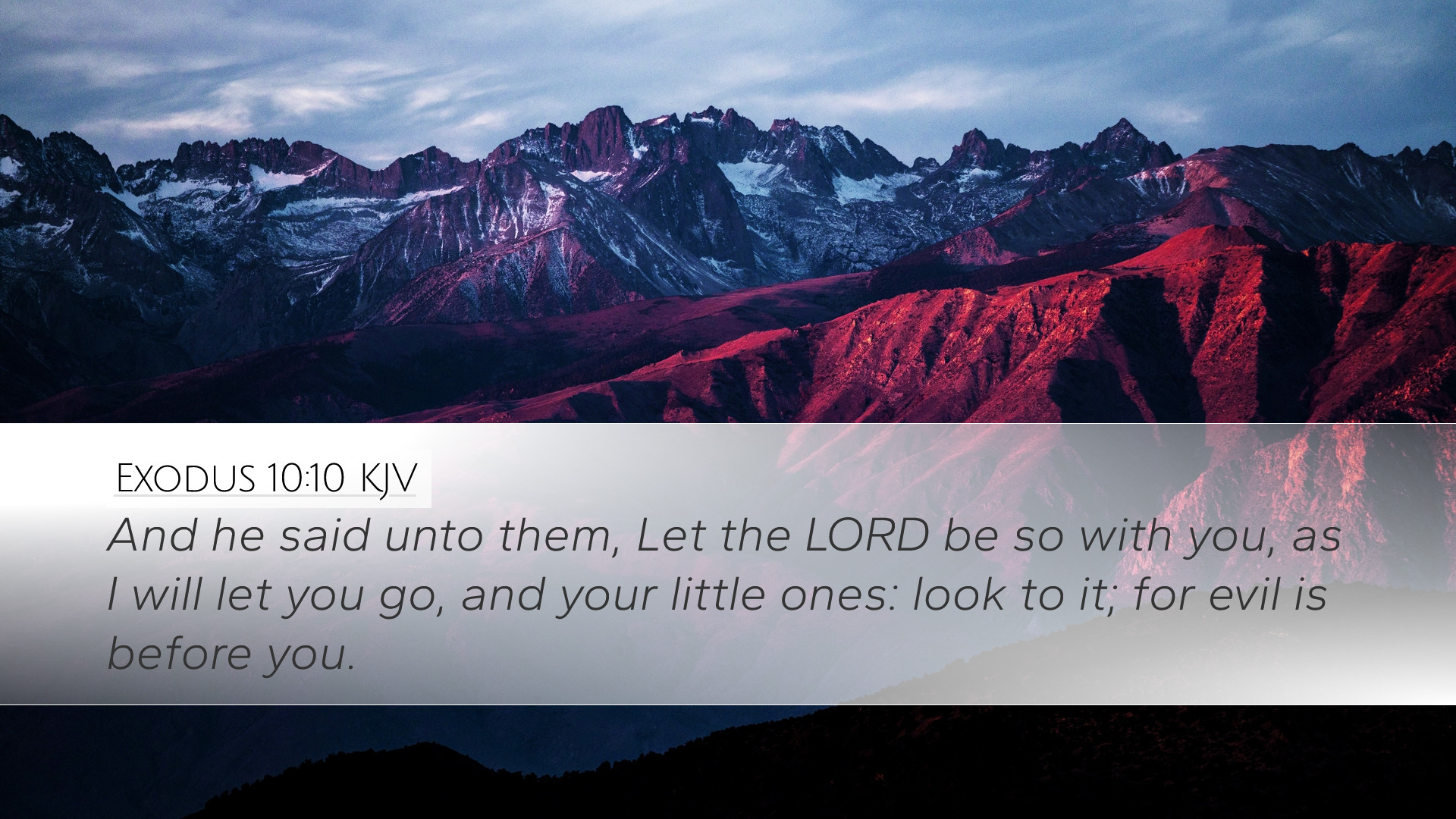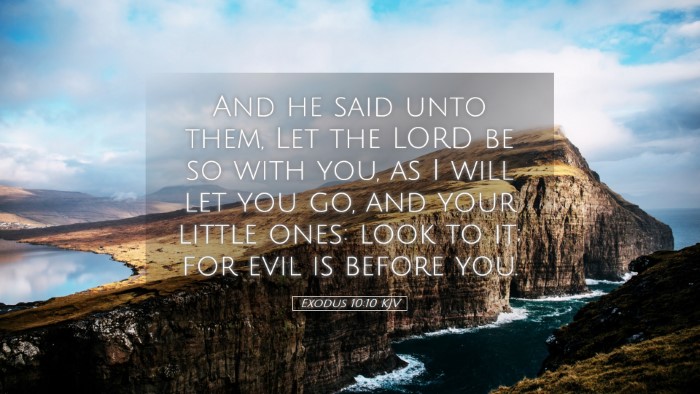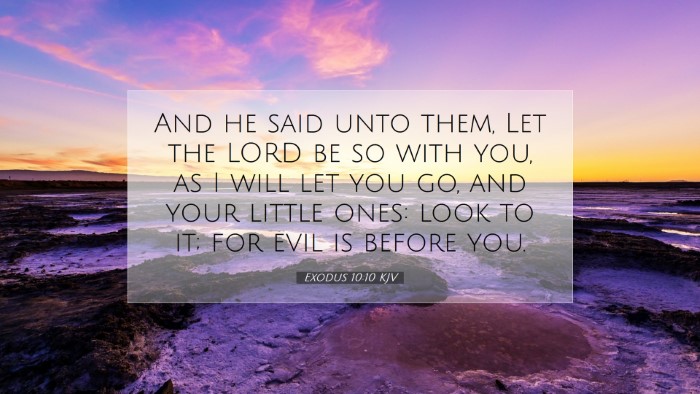Exodus 10:10 - Commentary Summary
Bible Verse: Exodus 10:10 - "And he said unto them, Let the Lord be so with you, as I will let you go, and your little ones: look to it; for evil is before you."
Contextual Overview
The context of Exodus 10 finds Moses and Aaron confronting Pharaoh yet again during the plagues of Egypt. This verse is part of the narrative describing the ninth plague (the plague of locusts). Pharaoh's hardened heart leads to a spiritual and moral wrestle between the will of God and the obstinacy of Egypt's ruler.
Insights from Commentaries
Matthew Henry's Commentary
Henry emphasizes the gravity of Pharaoh's words, which reflect his shifting disposition. He points out that Pharaoh is feigning concession by suggesting that he would allow the Israelites to go, yet he adds a condition that indicates his distrust. The emphasis on "evil is before you" signifies not only the impending judgment on Egypt but also underscores Pharaoh's fear of the repercussions should he let the Israelites leave. This suggests a lack of genuine repentance and illustrates the psychological and spiritual conflict inherent in his leadership.
Albert Barnes' Notes on the Bible
Barnes delves into the implications of Pharaoh's statement. By declaring, "Let the Lord be so with you," he inadvertently acknowledges the power of the God of Israel. Barnes remarks that Pharaoh’s verbal affirmation of God's power is a form of manipulation, where he seeks to protect his own interests while appearing compliant. He also notes how Pharaoh's concern for the "little ones" acts as a deceptive tactic to ensure that he still retains a level of control over the situation. This moment illustrates an ongoing theme of doubt and reluctance in Pharaoh's character, acting as a foil to Moses' unwavering faith.
Adam Clarke's Commentary
Clarke provides further analysis on Pharaoh's intention with his request. He suggests that the phrase "look to it" serves as a thinly veiled threat, signifying that if the Israelites go freely, Pharaoh would hold them accountable for potential disaster. Clarke elaborates on how this demands a reflection on the harsh realities of disobedience to God, invoking the idea that while Pharaoh makes outward promises, inwardly his heart remains resistant. This interplay reveals deeper themes of spiritual warfare and the cost of obedience versus defiance.
Theological Implications
The verse raises significant theological questions, particularly concerning the nature of repentance and the sovereignty of God. Pharaoh's dialogue serves as a case study for leaders grappling with divine authority against the backdrop of worldly power. Throughout the Exodus narrative, we see a dichotomy between divine calling (Israel's liberation) and earthly authority (Pharaoh's reign). This interplay can resonate with modern readers, particularly those in leadership, prompting reflection on how easily one can acknowledge God yet resist submission to His will.
Pastoral Applications
For pastors and church leaders, this verse calls for vigilance in self-reflection regarding the nature of their leadership. It invites an examination of their willingness to submit to God's purposes versus the temptation to maintain personal control. The importance of genuine repentance is underscored as being more than verbal acknowledgment of God’s power; it requires actionable faith and obedience.
Final Reflections
Exodus 10:10 encapsulates a moment rife with spiritual implications that echo through history. As believers are called to engage in discussions about power, authority, and God's will, this verse serves as both a warning and a guide. It challenges each individual to consider where they stand in relation to God's commandments, urging them to seek true alignment with His purposes.


